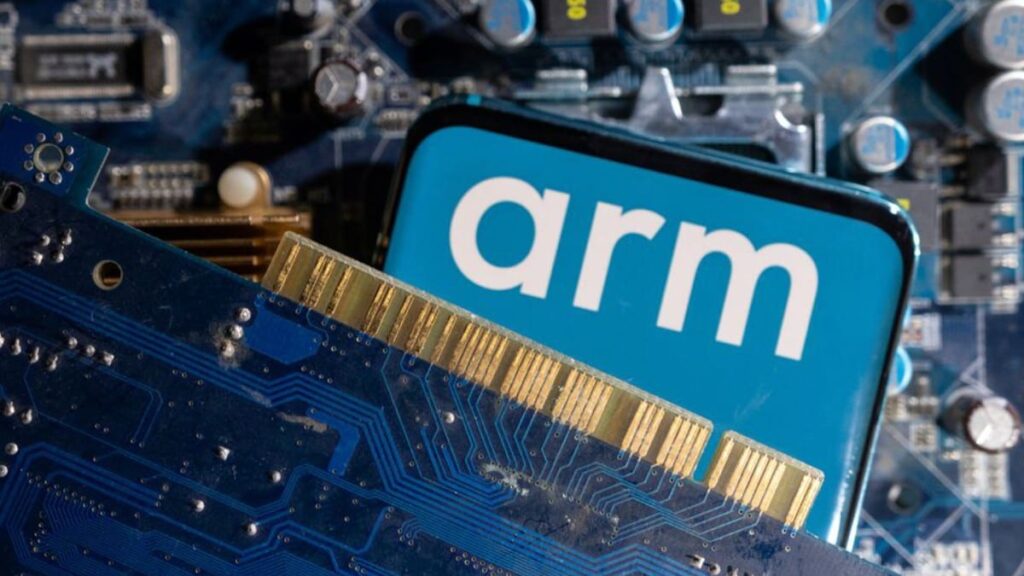Arm Holdings is revoking a license that allowed longtime partner Qualcomm to use Arm’s intellectual property to develop chips, intensifying litigation over vital smartphone technology.
According to a document seen by Bloomberg, UK-based Arm gave Qualcomm 60 days notice to terminate the so-called architecture license agreement. The contract allows Qualcomm to build its own chips based on standards owned by Arm.
The conflict threatens to disrupt the smartphone and personal computer markets, as well as disrupt the finances and operations of two of the most powerful companies in the semiconductor industry.
Qualcomm sells hundreds of millions of processors each year, the technology used in most Android smartphones. If the cancellation goes into effect, the company may have to stop selling products that account for most of its $39 billion (roughly Rs. 3,27,890 crore) revenue or face claims of huge losses.
The move revives a legal battle that began in 2022 when Arm sued San Diego-based Qualcomm — one of its biggest customers — for breach of contract and trademark. Arm gives the US company eight weeks to notify the cancellation. to resolve the dispute.
Arm representatives declined to comment. A representative of Qualcomm said that the British company is trying to “strengthen a long-standing partner”.
“This appears to be an attempt to derail the legal process and his request for a stay is completely without merit,” the spokesman said in an emailed statement. “We are confident that Qualcomm’s rights under the Arm agreement will be upheld.”
The two are headed to trial to resolve Arm’s breach-of-contract lawsuit and Qualcomm’s counterclaim. The disagreements center on Qualcomm’s acquisition of another Arm licensee in 2021 and a failure, according to Arm, to renegotiate the terms of the contract. Qualcomm says its existing deal covers the operations of the company it acquired, chip startup Nuvia.
Nuvia’s microprocessor work has become central to new personal computer chips that Qualcomm is selling to companies such as HP and Microsoft. The processors are a key component of a new line of AI-focused laptops called AI PCs. Earlier this week, Qualcomm announced plans to port Nuvia’s design, called Oryon, to its more widely used Snapdragon smartphone chips.
Arm says the move is a violation of Qualcomm’s license and is demanding the company destroy Nuvia designs that were created before the Nuvia acquisition. They cannot be transferred to Qualcomm without permission, according to the original lawsuit filed by Arm in U.S. District Court in Delaware. Nuvia’s licenses were terminated in February 2023 after negotiations failed to reach a resolution.
Like many others in the chip industry, Qualcomm relies on a set of instructions from Cambridge, England-based Arm, which has created most of the underlying technology for mobile electronics. An instruction set is the basic computer code that chips use to run software such as operating systems.
If Arm terminates the license, Qualcomm will not be able to build its own designs using Arm’s instruction set. It would still be able to license Arm’s designs under separate product deals, but that path would cause significant delays and force the company to waste work already done.
Before the dispute, the two companies were close partners helping to grow the smartphone industry. Now, under new management, they are both pursuing strategies that increasingly make them rivals.
Under Chief Executive Officer Renee Haas, Arm has moved to offer more complete designs—ones that companies can provide directly to contract manufacturers. Haas believes his company, which is still owned by Japan’s SoftBank Group Corp., should be paid more for the engineering work it does. The change affects the business of Arm’s traditional customers, such as Qualcomm, which use Arm technology in their own final chip designs.
Meanwhile, under CEO Cristiano Amon, Qualcomm is moving away from using Arm’s designs in favor of its own work, potentially making it a less profitable customer for Arm. It’s also expanding into new areas, especially computing, where Arm is making its own push. But the technologies of the two companies remain interconnected, and Qualcomm is not yet able to completely break away from Arm.
Arm was acquired in 2016 by SoftBank and part of it was sold to the public last September. The Japanese company still owns more than 80 percent of Arm.
Arm has two types of customers: companies that use its designs as the basis for their chips, and companies that build their own semiconductors and license only the Arm instruction set.
Qualcomm is no stranger to licensing disputes. The company makes a significant portion of its profits by selling the rights to its own technology, a key part of mobile wireless communications. Its customers include Samsung Electronics and Apple, the two largest smartphone manufacturers.
Qualcomm emerged victorious in 2019 from a large-scale legal battle with Apple. It also won a court ruling on an appeal against the US Federal Trade Commission, which alleged that the company used predatory licensing practices.
© 2024 Bloomberg LP
(This story was not edited by NDTV staff and was automatically generated from a syndicated feed.)


